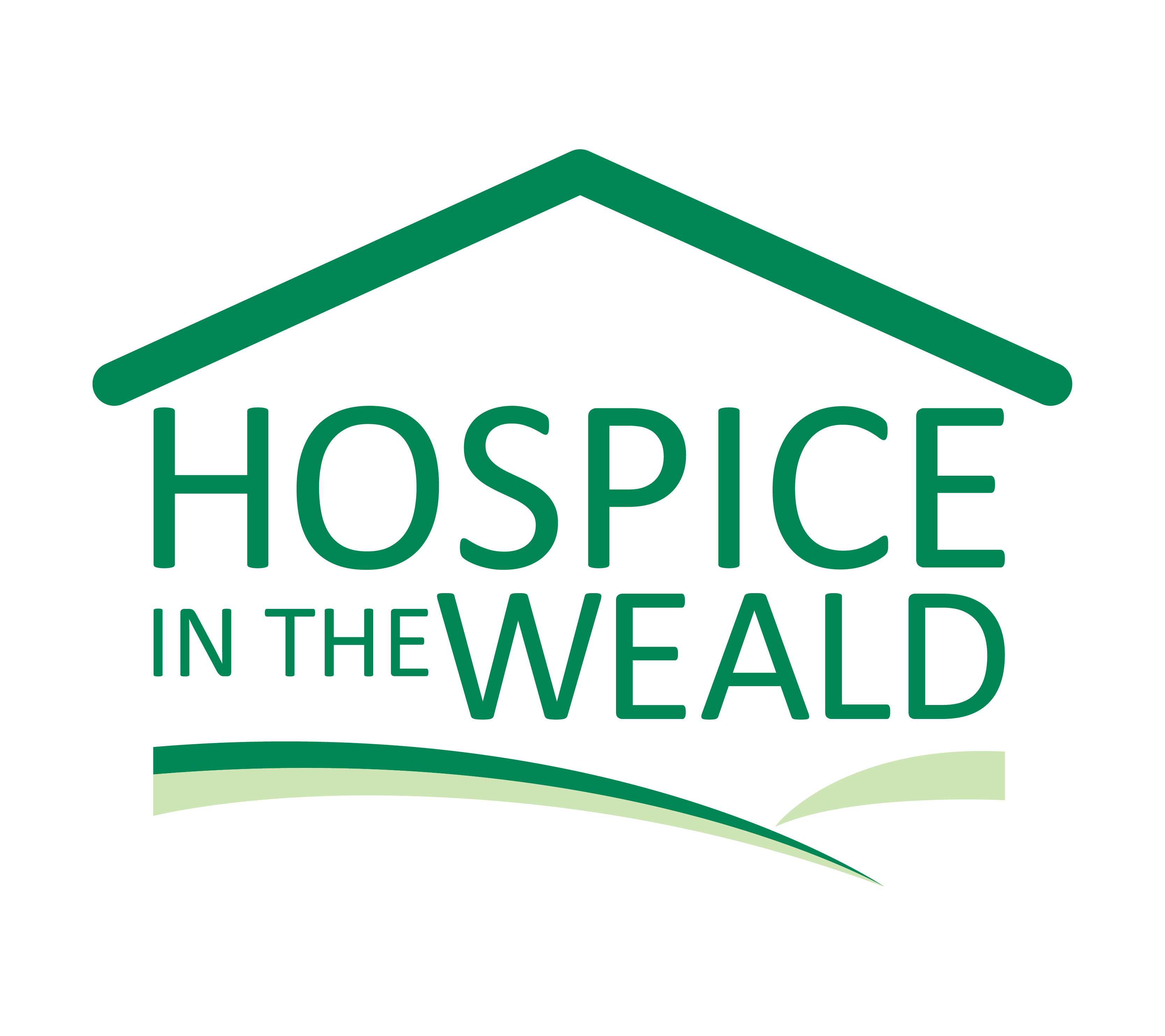Discover the care and support we offer
We provide Hospice care & support to patients and their loved ones living in Kent and East Sussex. Learn more about how we can help you.
If you or someone you love may benefit from Hospice care, you can find out more using the information below. For support or advice at any time of the day or night, please visit our Help Hub.

We provide Hospice care & support to patients and their loved ones living in Kent and East Sussex. Learn more about how we can help you.

Complete one of these short forms and we will contact you. There is no need to wait for a referral from your GP or healthcare professional.
We need to raise over £8 million every year to provide outstanding Hospice care to the local community. To get involved with our fundraising activities, design your own, or make a donation, use the information on this page.

For students and aspiring healthcare professionals, gaining hands-on experience in a medical setting is often a crucial step towards building a rewarding career in healthcare. Clinical experience helps develop key competencies, enhances patient interaction skills, and provides insight into the realities of working in a healthcare environment. Volunteering for a charity, such as a hospice, is a popular choice for many, but does it count as clinical experience?
Understanding what qualifies as clinical experience versus non-clinical experience is essential in making informed career decisions. While hospice volunteering offers invaluable exposure to patient care, whether it meets the criteria for clinical experience depends on the specific role undertaken.

Before determining if hospice volunteering qualifies as clinical experience, it’s important to understand the distinction between clinical and non-clinical roles within a hospice setting. Both types of experience play a critical role in shaping future healthcare professionals, providing a well-rounded perspective on patient care. Clinical experience builds technical and procedural skills, while non-clinical experience fosters empathy, communication, and a deeper understanding of the patient journey. Together, they create a comprehensive foundation for those entering the medical or hospice field.
Clinical experience typically involves direct patient care under the supervision of a healthcare professional. This can include activities such as:
Many hospice volunteer roles focus on providing comfort, companionship, and emotional support rather than direct medical care. Non-clinical activities include:
While these experiences do not involve direct medical procedures, they still play a vital role in the patient’s overall well-being and provide valuable skills applicable to healthcare professions.

For those seeking clinical experience in a hospice, there are several avenues where volunteers can engage in patient-centered roles under medical supervision.
Many hospices offer structured placement programmes for medical, nursing, and allied health students. These placements allow students to gain supervised, hands-on experience with patients, making them a legitimate source of clinical experience.
Some hospices provide opportunities for students to shadow healthcare assistants or nurses as they provide patient care. This can include assisting with feeding, repositioning, or providing basic patient support, giving volunteers insight into hands-on clinical care.
Certain hospices allow trained volunteers to engage in low-risk clinical activities such as assisting with patient mobility or providing comfort measures under a nurse’s supervision. These roles may count as clinical experience if they involve direct patient interaction in a healthcare setting.

Even if your hospice role does not qualify as clinical experience, it can still provide significant career benefits. Non-clinical volunteering develops key competencies that are crucial for anyone pursuing a medical career, from improving communication and teamwork to gaining insight into patient-centered care. A lot of non-clinical volunteering also involves working at shops, assisting with co-ordination or event planning, charity drives and various community activities – all skills and experiences which hold valuable experience and learning.
Hospice volunteering also helps develop essential skills that are valuable in clinical roles, such as:
Hospices play a unique role in healthcare by providing palliative and end-of-life care, and exposure to this setting gives volunteers insights that can benefit their medical careers. Volunteers can:
While non-clinical, these experiences shape volunteers into well-rounded candidates for medical and healthcare professions, demonstrating their ability to work in sensitive environments and support patients with dignity and compassion.

For students aiming to gain recognised clinical experience, there are formal pathways available within hospice settings.
Some hospices partner with universities and healthcare institutions to offer structured clinical placements. These are often part of medical, nursing, or healthcare training programmes and provide verifiable clinical experience.
Shadowing doctors, nurses, or physiotherapists in a hospice allows students to gain insight into patient care and medical decision-making, helping bridge the gap between academic learning and practical application.
To engage in clinical or non-clinical volunteering at a hospice, there are certain requirements volunteers should be aware of.
To become a hospice volunteer at Hospice In The Weald, all you need is enthusiasm and a desire to help, we’ll give you all the training and support you need.
By obtaining these certifications, volunteers can enhance their skills, improve their understanding of hospice care, and increase their chances of securing more hands-on clinical opportunities in the future.
Volunteer roles can range from a few hours a week to more structured placements with set schedules. Clinical placements often require a more significant time commitment, as they involve supervised learning.
Many hospices require an application, interview, and background check before accepting volunteers. For roles at Hospice In The Weald, visit our jobs and volunteering page, click on apply, fill in the form and we will be in contact. Some roles may require references or proof of relevant coursework if part of an academic programme.

Even if your hospice volunteering does not count as clinical experience in the strictest sense, the experience is still immensely valuable for personal and professional growth.
Working in a hospice setting provides a unique perspective on patient dignity, comfort, and a holistic approach to care. This knowledge is invaluable for those pursuing careers in medicine, nursing, or social work.
Hospice work can be emotionally challenging but helps volunteers develop resilience, coping strategies, and a deeper understanding of human connection and mortality.
Hospice volunteering offers opportunities to connect with healthcare professionals, which can be beneficial for mentorship, references, and career advancement.
If your goal is to gain clinical experience, consider supplementing hospice volunteering with additional hands-on opportunities such as:
While hospice volunteering alone may not always meet the criteria for clinical experience, it provides invaluable exposure to patient care and can be an excellent stepping stone for future healthcare roles.
Hospice in the Weald is proud to be supported by over 1,000 volunteers across all our services and departments. Quite simply, we couldn’t provide the exceptional care that we do without their hard work and dedication. Whether assisting in shops, supporting at events, or sharing specialist skills, there is a volunteer role for everyone. Anyone over the age of 16 can volunteer (over 18 in our shops), and regardless of your experience, you can make a difference.
Volunteering at Hospice in the Weald is not just about giving back, it’s about gaining valuable experience, meeting new people, and learning new skills. We provide all the necessary training and support to help volunteers make the most of their role. By dedicating even a few hours a week, volunteers become part of a workforce committed to providing compassionate, holistic care for those living with a terminal illness and for the people important to them.
For those seeking structured clinical experience, exploring student placement programmes and shadowing opportunities within hospices can be a great way to gain hands-on learning. To find out more about hospice volunteering opportunities, visit our current hospice vacancies page or contact our team to explore available roles.


